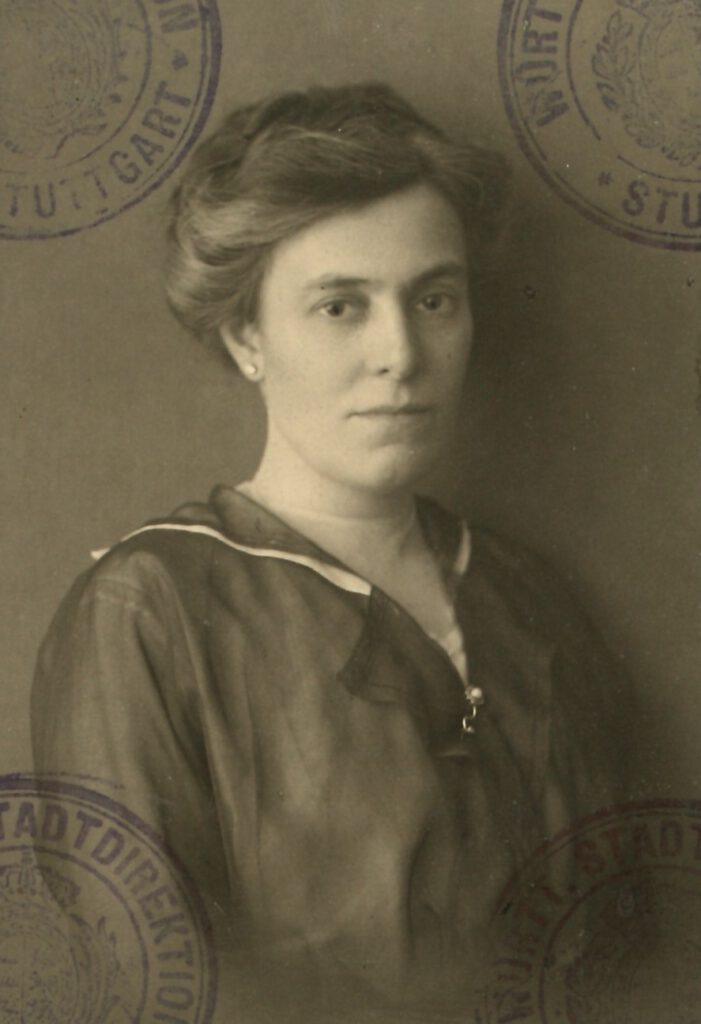Born on July 12, 1872 in Fürth
Murdered in the Ghetto Theresienstadt concentration camp on April 5, 1944
Interned in Weißenstein in February 1942
Her parents Klara Schweizer, née Seckstein, and Max Schweizer ran a factory in Fürth. Sigmunde must have grown up in prosperity; her family nickname ‘Mundi’ sounds cheerful. Shortly before her 22nd birthday, she married the Stuttgart merchant Albert Friedmann, who ran a white and woolen goods store with his brother and their own production. Sigmunde’s daughter Else was born in April 1897, followed by her daughter Claire in 1900. Both daughters found spouses and from the 1920s Sigmunde was able to enjoy her grandchildren Hans, Ernst and Charlotte.

A sad turning point in her life was the early death of her husband in February 1931. The family business had to be closed during the Nazi era. As a widow, Sigmunde mainly looked after her two grandchildren in Stuttgart. Her daughter Else, who lived in Nuremberg, fled to Yugoslavia with her husband and child in June 1934, while her daughter Claire and her family moved to the USA in 1939.
From December 1938, Sigmunde Friedmann was gradually dispossessed by the Nazi state; her last home in Stuttgart was a small rented apartment. In February 1942, she was interned in Weißenstein Castle, but was sent from Stuttgart to the Theresienstadt ghetto in August of that year. Her life ended there on April 5, 1944 due to the murderous living conditions.
In a major radio project between November 8, 2013 and May 8, 2015, the SWR2 radio station investigated individual life stories that are hidden between the dates of birth and death on laid stumbling stones. In an interview with medical journalist and author Charlotte Isler, who was born into a Jewish family in Stuttgart in 1924, she also recalls her grandmother Sigmunde Friedmann (only in German).
See also the Stuttgart Stumbling Stone biography of Sigmunde Friedmann.
(17.06.2023 kmr/ww)

